Slang: the stepchild of language that too often gets dealt a bad hand. It is fun, lively and full of character but maybe its wild side is what threatens the traditionalists who are quick to criticize it.
Like fashion, slang has its season. What is trendy today may sound out of place in a year, but then could make a revival several years later. Think of terms like “groovy” and “jive.” Let’s see how long “swag” stays in fashion.
This week as we continue to explore slang, jargon and acronyms, Collaborative Services spoke with local linguist and defender of slang, Grant Barrett. Barrett is the current co-host of the nationwide public radio show A Way with Words, public speaker, lexicographer, journalist, and serves at the Vice President of the American Dialect Society. Barrett talks with us about whether or not San Diego has local slang, why he is an adamant defender of slang and some of his favorite slang terms. We welcome his insights.
– – –
What is slang? Is there a precise definition?
Walt Whitman called it an “attempt to escape from bald literalism,” which is as good a definition as any. It’s also been called “the poetry of the people.”
But really, there’s no precise definition of slang, even among linguists, because it’s not really a linguistic term of art. Linguists and dictionary editors tend to be careful, and would refer to “nonstandard” or “informal” language, which helps correct the common person’s misconception of slang as strictly ungrammatical or being made entirely of taboo words connected to naughty deeds and thoughts.
In general, though, slang is:
- Used in contrast to formal or prestige modes of speech.
- Often employs new synonyms or reframing for things which are already well lexicalized in mainstream speech.
- Most often created and used by those who have little social, financial, political, or other power.
- Tends to be age-graded and to be closely associated with a time and place, and with a body of similar people.
- Closely associated with a particular subset of a society, in both large and small groups.
Earlier this year you hosted a public presentation in San Diego called “A Lively Defense of Slang.” Where did the idea come from and why did you feel it was necessary to defend slang?
That it’s where the fun is to be had is the best reason for defending it!
There’s so much new slang it’s impossible to keep up, and if we can find it and define it, we can peer into subcultures and learn a little bit more about other ways of life.
Slang is a key part of the language of surfers, soldiers, schoolkids, surgeons, and it’s a good on-ramp for learning more about language overall.
But as far as defending it, it’s also because I think it’s been done a disservice. Once I began looking into the history of the study of slang, what I found were old white men with East Coast educations and a lot of money and power criticizing the speech of the poor, the uneducated, the powerless, those with non-Eastern regional accents, and people of color.
It became clear pretty quickly the word “slang” was — and is — used as code, and that criticizing it is a stand-in for the critiques they really wanted to make but couldn’t because that would too obviously show their elitism, classism, ethnocentrism, racism, and pure snobbery.
Just one of zillions of examples:
“The use of slang … as a substitute for differentiated specific expressions is at once a sign and a cause of mental atrophy.” — Oliver Wendell Holmes.
So, a decent jurist, but talking out of his element when it came to language.
By sticking up for slang, I help recognize this form of speech as valuable and brush away some of the complaints and really look at slang for what it is: a colorful mode of speech practiced by everyone at some point in their lives. It’s as harmless as any other kind of language.
Without it, we’d all talk like the fine print on a home loan.
Does San Diego have its own slang? What are some local slang words that may sound strange to visitors?
It doesn’t have very much of its own slang, but there are several larger influences here that overlap and create a kind of “slang voiceprint”:
- Hybrid English/Spanish combinations show the influence of multi-generational Chicano English, as well as the direct cross-border influence of the variety of Spanish spoken in Northern Mexico. “Spanglish” is here, too: a kind of fast codeswitching that serves temporary speech goals to get around gaps in vocabulary and understanding but isn’t really a language, dialect, or pidgin in the whole.
- In the Southeast of San Diego, decades of gang activity has left a large amount of “Bloods” slang, which is sometimes so pervasive that its speakers don’t even know its origins and don’t have any gang affiliation themselves.
- Just as in the rest of country, television shows like South Park continue to leave their mark.
- Surfer slang is less remarkable than it was, which is pretty great considering how unusual it had been. But it’s still here, still in use, and shows up in the coastal communities.
You edited the Oxford Dictionary of American Political Slang. What fascinates you the most about this type of slang?
Any domain where folks are working intensely toward a common purpose generates its own insider language, much of it jargon or slang (which are different things). It’s pretty great to dive into this stuff and try to determine what they mean and to get it on the record once and for all. Politics are a large part of what we consider the history of this country, so making dictionaries to understand it is useful.
The biggest surprise for me was finding that “political football,” a hot potato issue that gets passed around without being resolved, was 150 years older than anyone thought. It even predates American football. It originally meant any kind of ball that you could kick around, not the American sport.
Why is knowing the history and meaning of slang words important?
By defining the language we use we understand ourselves and our history. Slang words are simply more language. No worse, no better. They’re worth recording because, without some attempt to explain them, a complete understanding of historical writing will gradually become impossible.
How do you keep up with the latest slang terms? Are there certain resources you use or that you would recommend?
I read, watch, and listen, then make notes. That’s the bulk of it. I have giant files of stuff I’ve collected over the last 15 or so years, in various states of disarray, but all of it is worthy of a little more exploration.
What do you consider the best new slang word or phrase for 2013 and why?
I think it’s going to have to be “cronut,” a pastry that is a cross between a croissant and a doughnut, or “sharknado,” after the cheesy film, about a tornado of sharks, that recently made a splash on television. They’re fun, they represent something a lot of people might experience and they’re likely to go stale fast so they’ll retain a strong scent of 2013 for decades to come.
What is your favorite slang word and why?
All my favorites are naughty! Though I must say, “muffin top” for the bulge of fat that appears over a waistband has so far withstood the tests of time and seems to be in it for the long haul. It’s a near-perfect slang term in that it is a more interesting synonym for something that otherwise isn’t all that welcome of a discussion topic.
– – –
To learn more from Grant Barrett click here or follow him on Twitter at @GrantBarrett.
Liz Faris, Associate
Collaborative Services, Inc.

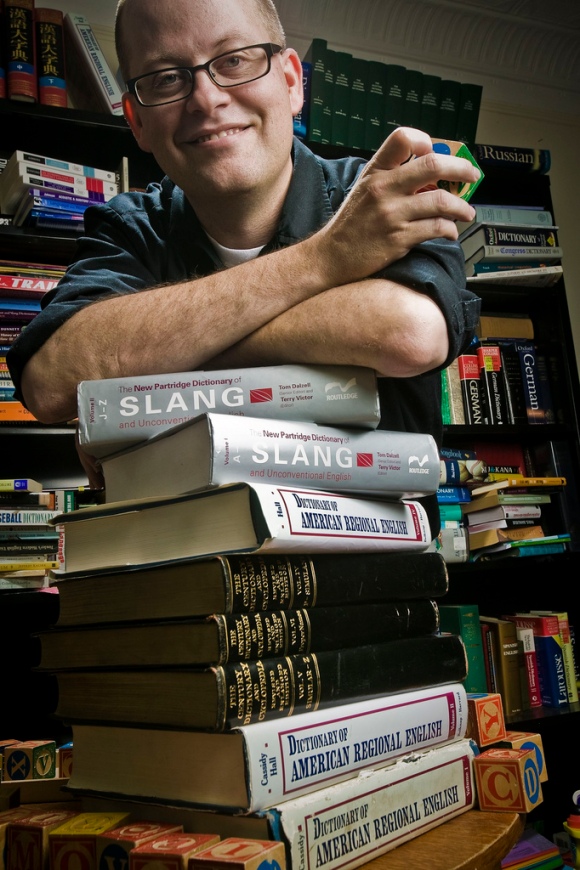
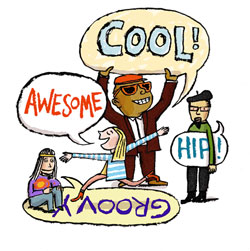
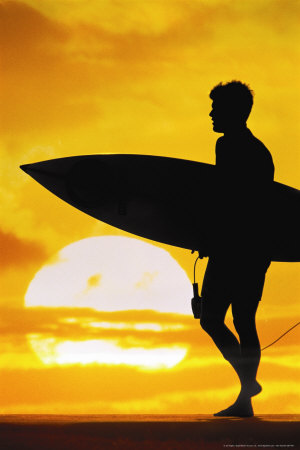
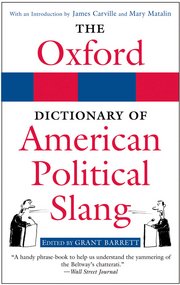
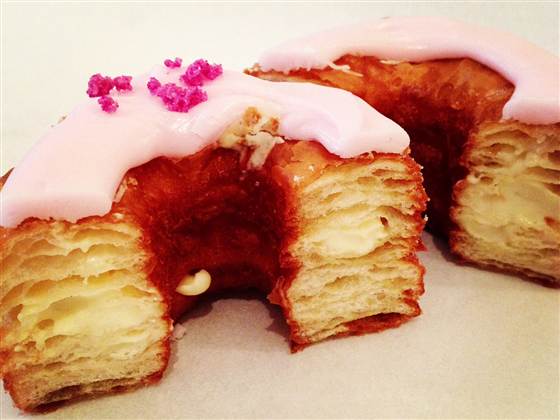
Recent Comments